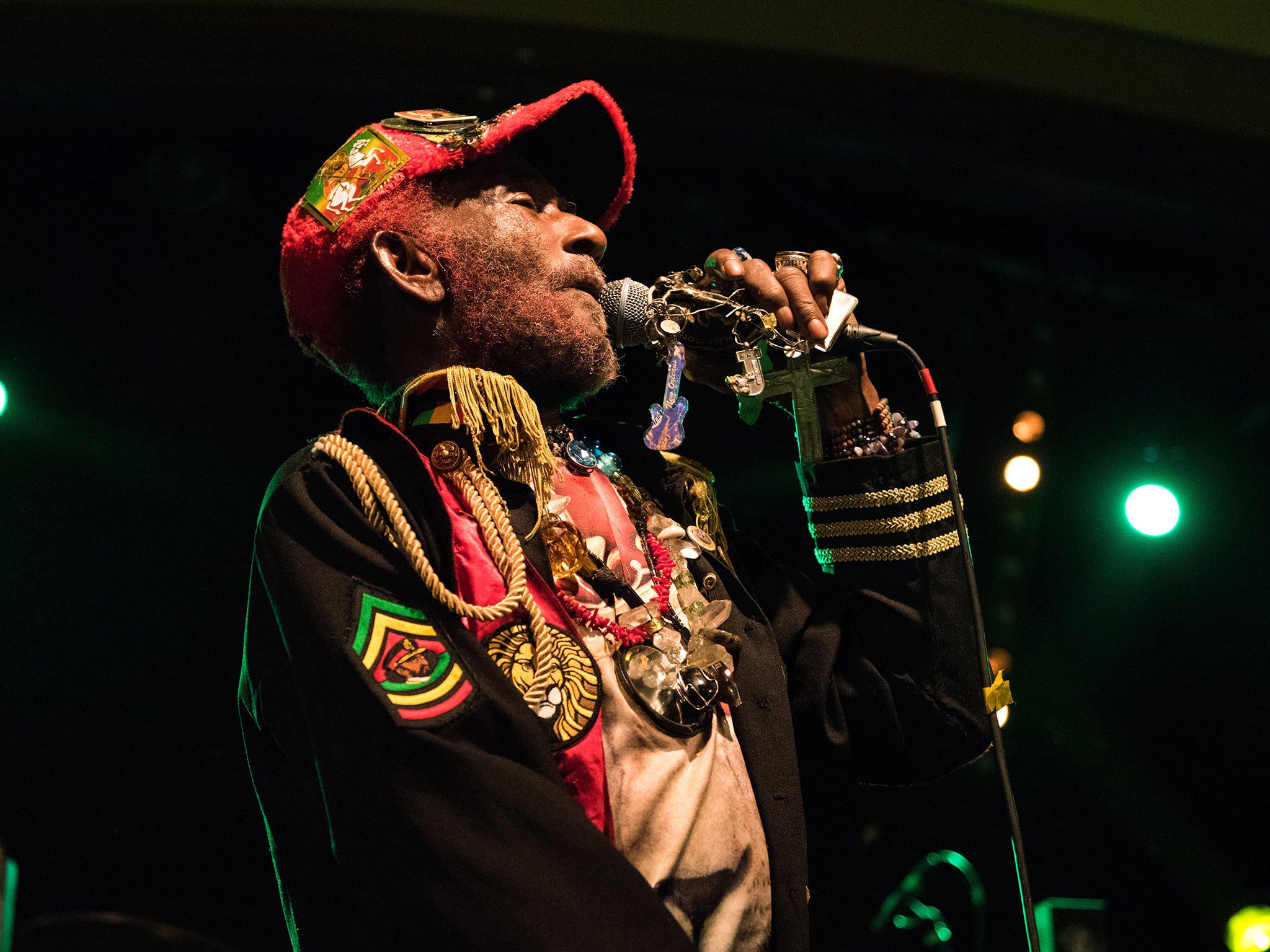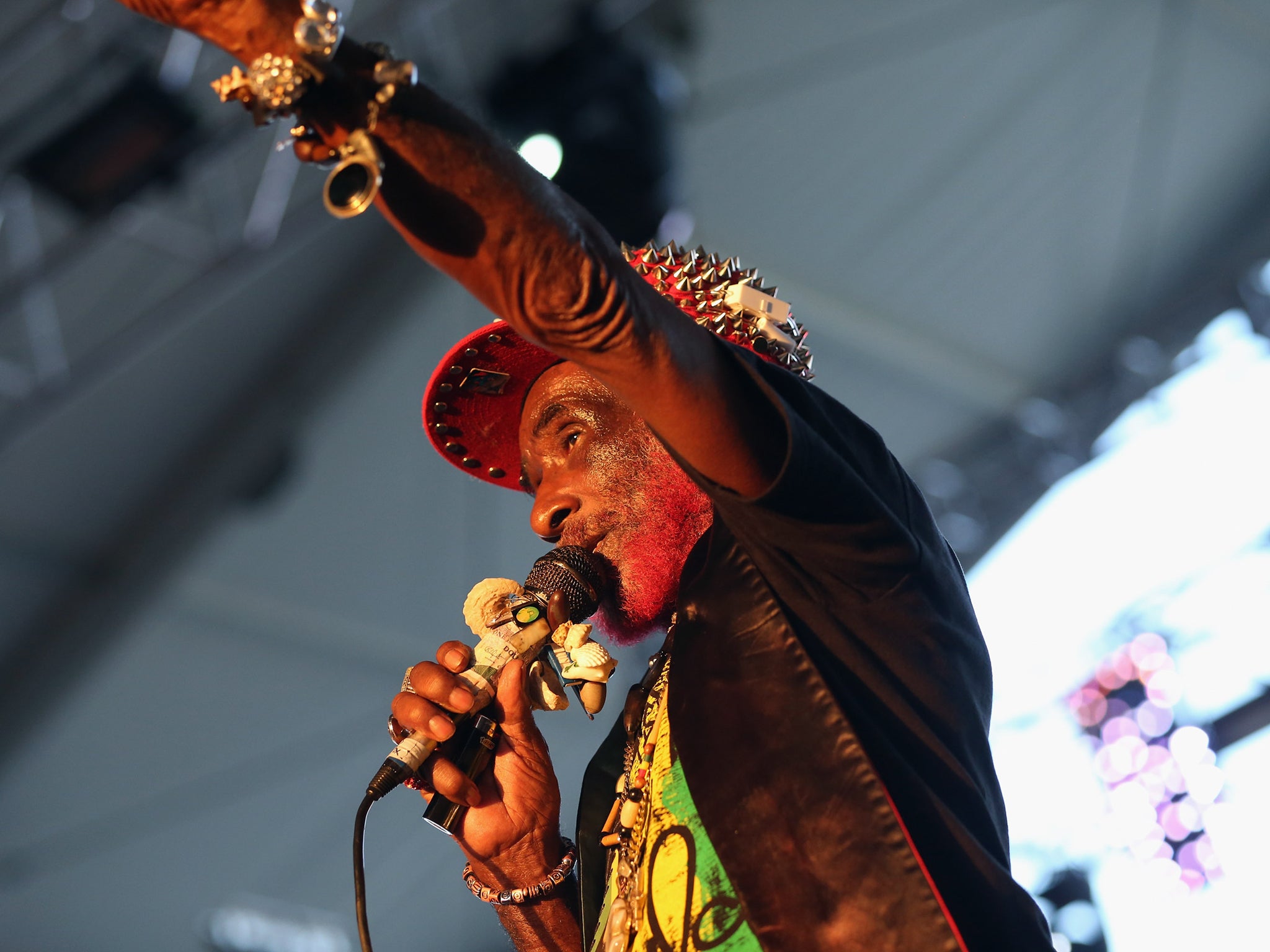Lee ‘Scratch’ Perry: Reggae legend who revolutionised the genre
With some observers calling him a ‘shaman’ for his talent for unconventional techniques, the musician created the origins of dub

The Jamaican record producer and singer Lee “Scratch” Perry was a pioneer in the worlds of ska, rocksteady, dub and reggae, and one of the most prolific musical artists of all time.
Perry, who has died aged 85, believed: “When you're playing music, you're touching the heart and the brain. But the people can't move until you touch their spirit. So you have to touch their hearts, their brains, and then their soul is tickled and they fly”.
Keith Richards once said of Perry, “More than a producer, he knows how to inspire the soul of the artist ... Scratch is a shaman.”
Rainford Hugh Perry was born in Kendal, Jamaica, in 1936, and was the third of four children. He recalled of his early years: “My father worked on the road, my mother in the fields. We were very poor. I went to school … I didn’t learn anything at all. Everything I have learned comes from nature.”
Leaving school aged 15, Perry began working in the music business, selling records for Coxsone Dodd, the founder of “Jamaica’s Motown”. When Dodd opened his renowned Studio One in Kingston in the early Sixties, Perry produced a number of songs for the new label, recording initially on a simple two-track tape machine.
Perry acquired his first nickname from his work on the 1965 song, “Chicken Scratch”. A further nickname, “The Upsetter”, arose from another Perry tune, which included the lyrics “I am the avenger, you’ll never get away from me / I am the Upsetter.”
By 1968, Perry had left Studio One having already found widespread recognition within the world of Jamaican rocksteady and ska. He was ready to create his own label, Upsetter Records. That same year he released “People Funny Boy”, a breakthrough for him and one of the first songs to cross over from rocksteady to a reggae rhythm.
The single is notable for its use of a crying baby as a sound sample, an early example of this technique. His repertoire of other samples included putting microphones in the base of a tree and thumping the trunk to produce a deep bass sound.

Two years later he began a collaboration with Bob Marley and the Wailers and went on to produce Marley tracks including “Soul Rebel” (1970), “Duppy Conqueror” (1971), and “Sun is Shining” (1971), transforming the local stars into a worldwide phenomenon. Perry recalled: “I was playing the part of the prophet, and Bob was playing the part of the king to establish the music.”
Perry’s Black Ark Studios, built in 1973 next to his home in the Washington Gardens area of Kingston, became a hub of creativity over the next decade. He said, “The studio must be like a living thing. The machine must be live and intelligent. Then I put my mind into the machine by sending it through the controls and the knobs. Think of music as life...”
The Jamaican music scene always had strong connections with the UK through the Windrush generation and beyond. In 1977, punk band The Clash recorded “Police and Thieves”, a cover of a Junior Murvin track recorded at Black Ark Studios just the previous year.
Following a period of depression and the destruction of Black Ark in a fire, the Eighties and Nineties saw Perry travelling across the US and Europe, bringing his music to audiences in wildly eccentric and psychedelic live performances.
David Katz, author of the biography People Funny Boy: The Genius of Lee “Scratch” Perry (2000), says of his prolific oeuvre: “The recorded output of reggae shaman Lee ‘Scratch’ Perry forms something of a bottomless pit, a never-ending well of individual sounds that all bear his unorthodox hallmarks.”
Perry had also resided in Switzerland and died at the Noel Holmes hospital in Lucea, Jamaica.
DJ David Rodigan said in tribute: “Lee ‘Scratch’ Perry has left us and the world of music has lost one, if not its most enigmatic creators; an amazing, incomparable phenomenon whose sonic sound waves transformed our lives; the Blackboard Jungle album alone stands as a beacon of his genius.”
Perry was married firstly to Paulette Perry, divorced in 1979, then in 1989 to Mireille Ruegg, who survives him with their two children.
Lee Perry, record producer and singer, born 20 March 1936, died 29 August 2021

